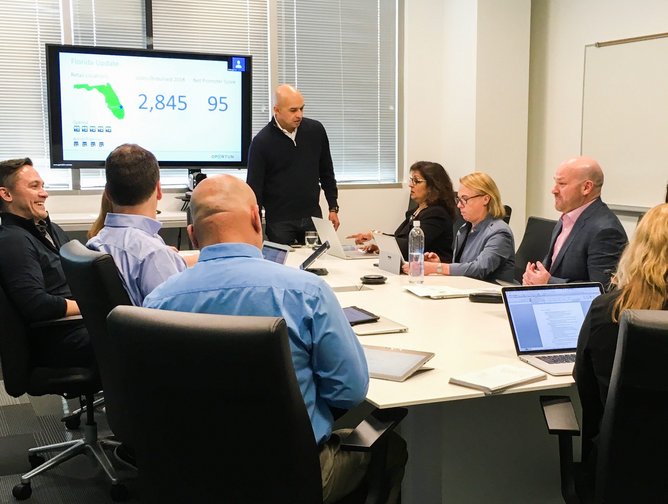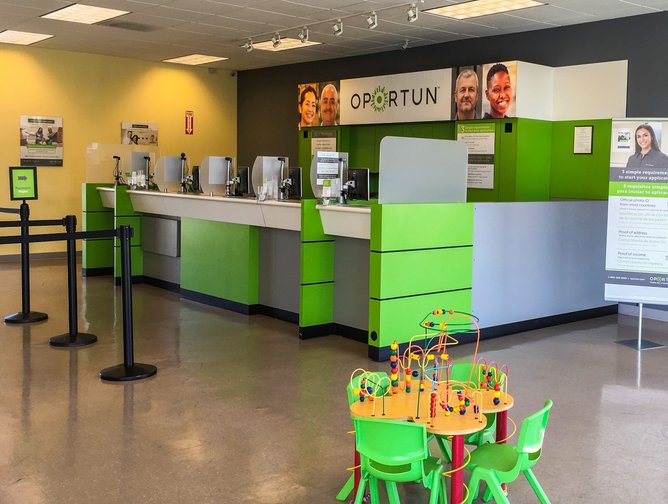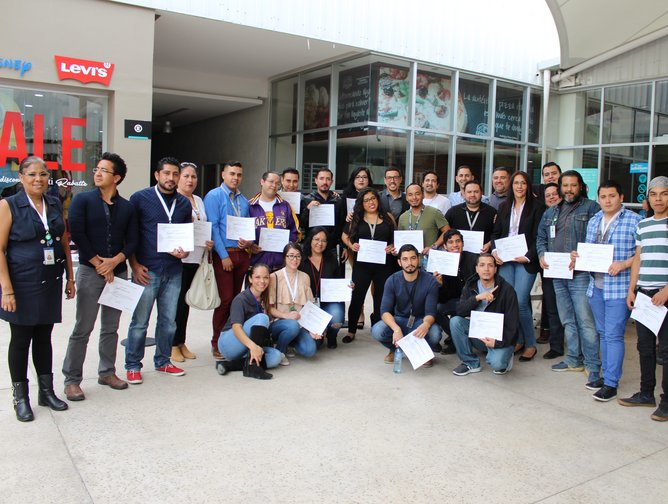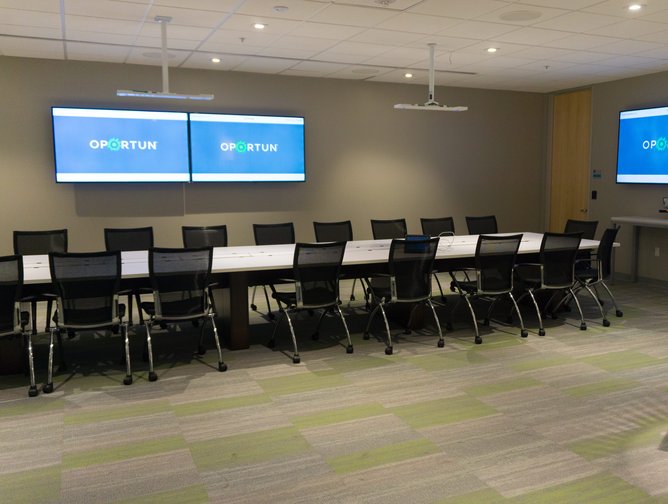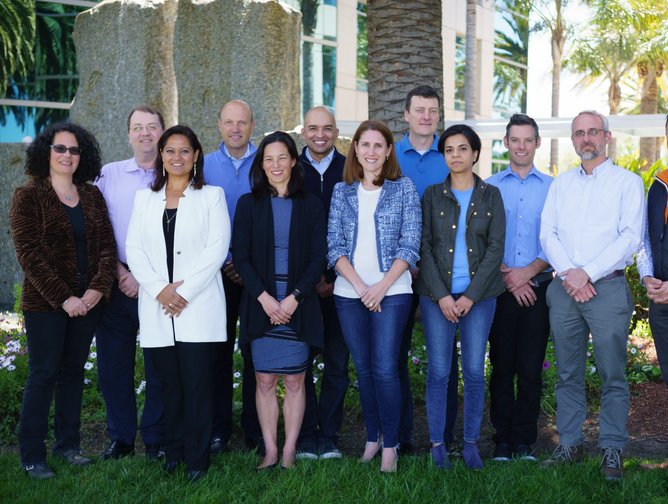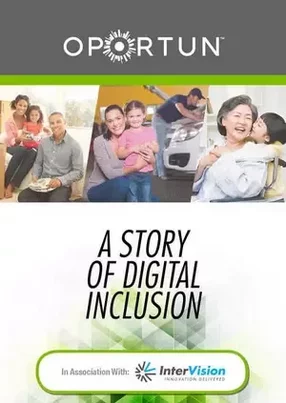How Oportun leverages technology to power financial inclusion in the USA
There are an estimated 45mn people in the United States with little or no credit history according to the Consumer Financial Protection Bureau (CFPB).
“Our goal is to be able to lend them the money they need today while helping them establish the credit history that will help them move forward with their lives tomorrow,” comments Oportun VP of IT, Hiba Sharief. Oportun’s work providing unsecured loans to people with limited or no credit history earned it the 2018 LendIt Award for Financial Inclusion and recognition as a Finalist in the inaugural WSJ Financial Inclusion Challenge for the US this year.
According to Sharief, people underestimate the importance of having a credit history and score. “When I moved to the United States in the mid-90s, we couldn't even get an apartment without someone running a credit check,” she says.
Oportun disbursed its first loan in 2006 from a folding card table at a grocery store in California. By 31 March 2018, it had disbursed more than $5bn dollars through more than two million loans. It currently operates 270-plus retail locations in low-to-moderate income neighborhoods in addition to contact centers and a mobile platform. “We want our customers to choose the option that works best for them, whether that means applying in person, using their mobile phone to apply online or calling one of our contact center agents,” adds Sharief.
Helping Oportun scale
Sharief joined the company in 2015 and was drawn to Oportun for two reasons: First, she believed in the company’s mission and saw an opportunity to find purpose and meaning at work. Second, she knew that her expertise in technology could help Oportun scale its business and help more people.
“As a startup, Oportun had systems and processes that worked well, but drawing from my experience, I knew we needed to put a roadmap in place for our systems to keep pace with the Company’s rapid growth,” said Sharief.
Within her first few weeks at Oportun, Sharief got her team aligned to a roadmap that had two prongs: “Quick Wins” to ensure near-term systems stability and four long-term programs that would help prepare Oportun for future growth and scalability. These programs included robust efforts around technology architecture and infrastructure, security, process design, and collaboration.
Technology architecture
For the technology architecture work stream, the primary goal was to deliver resilience, availability and scalability while providing the engineering team with the solutions and self-service capabilities they needed to deliver software solutions to our customers.
“One of the first things we did was a financial analysis, including a total cost of ownership (TCO) analysis to look at the different options for both refreshing the current infrastructure and moving to the cloud,” Sharief explains. As part of the three-year roadmap she established, the team’s first order of business was to bolster its IT infrastructure and set it up for future scale.
“People think that the cloud is cheaper, but it can get really expensive, really fast,” adds Sharief, who explained that cost optimization needs to be a constant priority. “Today, everyone on the team finds ways to improve processes, reduce costs, or get more done with the same or less.”
Security
“The financial services industry is highly regulated, and the risks of external and internal cyber threats need to be well managed. The Security strategy established by Tyson Kopczynski, VP of Security, is holistic in nature. ACT SMART is an acronym we use to describe how a focus on Awareness, Culture and Technology through Solutions, Monitoring, Advisory, Response and Testing will lead to empowerment and transparency,” notes Sharief. Similar to technology, Oportun has chosen to deliver Security as a Service, including everything from the physical security of retail locations to the Security Operations Center (SOC).
Process Design
In the spirit of having a holistic ‘people, process and technology’ approach to transformation, Sharief’s strategy was heavily focused on establishing and maturing processes.
“Upon joining Oportun, we conducted a Capability Maturity Model Integration (CMMI) assessment of key processes used to manage technology,” she recalls. “It is incredible to see how we matured in some areas. A great example is enterprise service management, where our leader Eduard Jooste has presented innovative solutions at this year’s ServiceNow Knowledge18 conference.”
Collaboration
Adopting large-scale collaboration platforms and video-conferencing technologies have enabled the talent strategy at Oportun to hire and retain top talent, regardless of location. “With a growing global footprint across the US and Mexico, I love seeing all the faces on camera when we meet as a team,” Sharief says.
She strongly believes that when people are involved in meaningful work, treated as professionals and happy, they will be more engaged, empowered and productive.
Key to Success: Culture
At Oportun, the technology teams see themselves as business leaders, not just technology specialists. According to Sharief, her team has taken best practices and helped the other parts of the organization adopt them for different purposes. Likewise, some agile approaches used for software development are now used in other parts of the organization to manage large business initiatives.
Hiba explained that the key to Oportun’s success in scaling as a business has been as much about the people and culture as it has been about implementing the right technologies and processes. “People often underestimate the importance of culture, but we’ve found that hiring people with a growth mindset and a thirst to learn and improve is absolutely critical.”
Oportun’s corporate culture emphasizes the importance of learning. The CEO, Raul Vazquez, regularly shares podcasts and books that inspire him and encourages others to do the same. The technology team meets weekly and takes turns teaching each other about different topics.
“Everyone is as serious about learning and improving as they are about helping the company achieve its mission of helping more of the 45mn people in the US who are shut out of the financial mainstream because of their lack of credit history.”
It is that attitude and culture to which Sharief attributes Oportun’s success. “It is also why it is hard to imagine a more interesting and fulfilling workplace where everyone is striving to push the envelope.”
